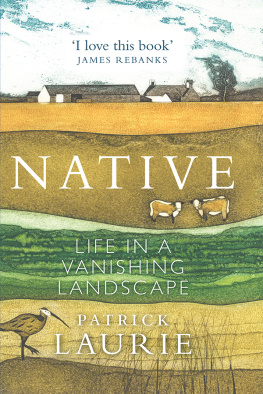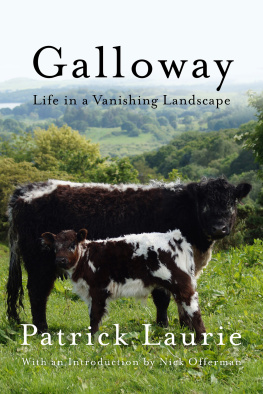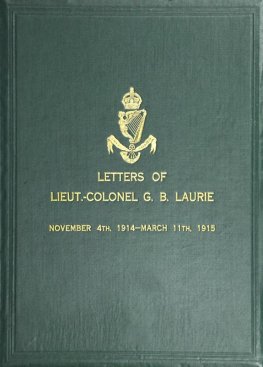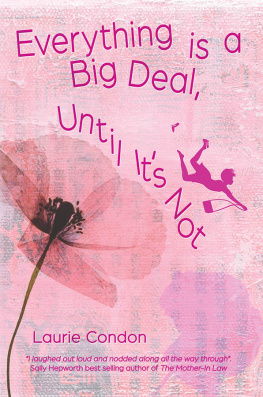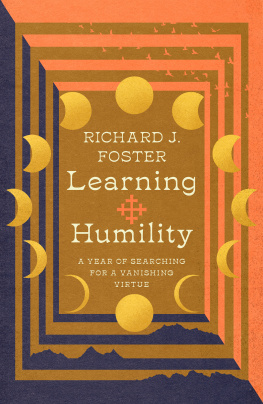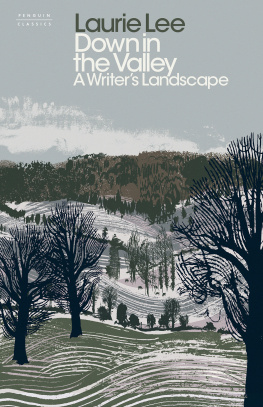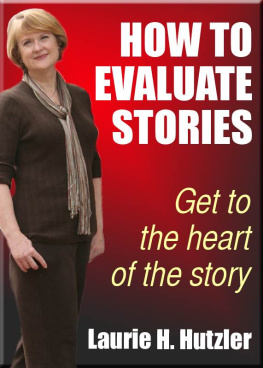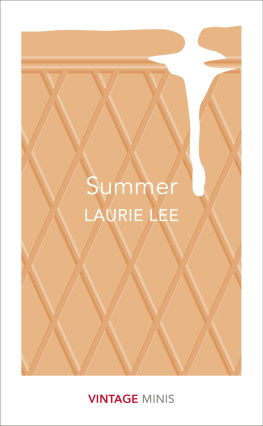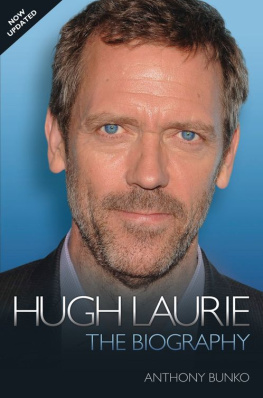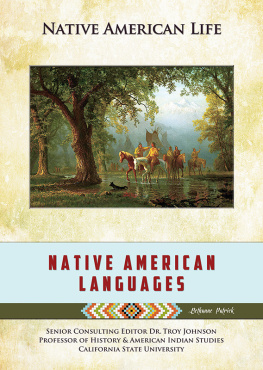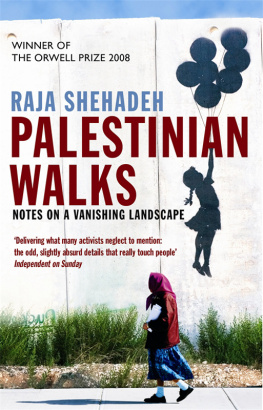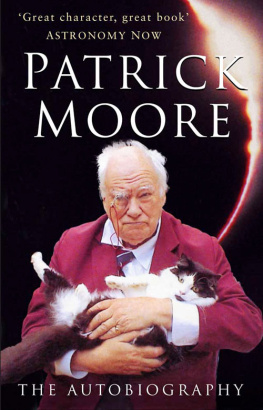Patrick Laurie - Native : life in a vanishing landscape
Here you can read online Patrick Laurie - Native : life in a vanishing landscape full text of the book (entire story) in english for free. Download pdf and epub, get meaning, cover and reviews about this ebook. year: 2020, genre: Home and family. Description of the work, (preface) as well as reviews are available. Best literature library LitArk.com created for fans of good reading and offers a wide selection of genres:
Romance novel
Science fiction
Adventure
Detective
Science
History
Home and family
Prose
Art
Politics
Computer
Non-fiction
Religion
Business
Children
Humor
Choose a favorite category and find really read worthwhile books. Enjoy immersion in the world of imagination, feel the emotions of the characters or learn something new for yourself, make an fascinating discovery.
- Book:Native : life in a vanishing landscape
- Author:
- Genre:
- Year:2020
- Rating:4 / 5
- Favourites:Add to favourites
- Your mark:
- 80
- 1
- 2
- 3
- 4
- 5
Native : life in a vanishing landscape: summary, description and annotation
We offer to read an annotation, description, summary or preface (depends on what the author of the book "Native : life in a vanishing landscape" wrote himself). If you haven't found the necessary information about the book — write in the comments, we will try to find it.
Native : life in a vanishing landscape — read online for free the complete book (whole text) full work
Below is the text of the book, divided by pages. System saving the place of the last page read, allows you to conveniently read the book "Native : life in a vanishing landscape" online for free, without having to search again every time where you left off. Put a bookmark, and you can go to the page where you finished reading at any time.
Font size:
Interval:
Bookmark:
There are many sound and authoritative books on Galloways history. This is not one of them.
Native has been worked up from a thousand conversations over a fifteen-year period, so perhaps its no surprise that the result should occasionally wander from certifiable truth. But if folk tell a story about themselves and their place for long enough, then surely that becomes a thing worth hearing.
If Ive failed to deliver on fact, then I must recognise the value of fiction. It feels important to record my debt to the Victorian writer S.R. Crockett, who spun the folklore and traditions of old Galloway into a series of novels more than a century ago. When I was twelve years old, I read his book The Raiders and knew beyond all certainty that I came from a grand and mighty place. The tale of thieves on the Black Water belongs to Crocketts imagination, as does my absolute faith in the power of belonging.
Of course this book could never have been made without the help and support of my wife and our friends, who endured many of these highs and lows with deep and lasting patience. Thank you.
Thanks are also due to my agent, Jenny Brown, who backed Native from the beginning, even when it lay in pieces. And from Jenny to the team at Birlinn, particularly Hugh Andrew and Anita Joseph, who stirred the pot at crucial moments.
Finally, I can do no more than nod in deference and respect to the many men who became Sanny. Some, but not all of these, are Joe, Jackie, George, Bill and the gentleman Peter Kelly, who lived all his days at Laggan o Dee.
Theyre all away now. We walk in their wake like weakling kids.
Patrick Laurie
March 2020
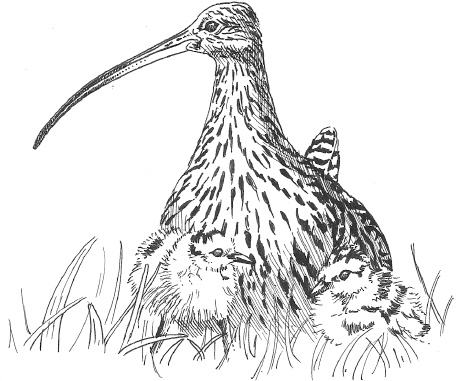
I peer through an open window in the darkness. The morning feels warm, and the fields click and chatter as they drain the nights rain. Drips plop off gutters in the yard and a curlew calls. Our cockerel answers from the shed, and his din makes the tin roof ring.
Curlews vanished from the glen when the weather was cold, but they returned within hours of the thaw. Large winter flocks come inland from the sea and probe the sodden ground with long, curved beaks. I take the dogs out before breakfast and find the half-light filled with the sound of wading birds.
Our stretch of the river was straightened many years ago. Men dug a new and more efficient path for the water, but they failed to iron out the old bends. The river follows a straight and perfect line through the dark soil, but you can still see where the old stream used to play in swampy, tangled loops. Heavy rain can bring this waterway back to life subtle contours flood again and become strings of narrow pools, pouchy old veins which bristle with reeds. The new river rushes water briskly out to sea. The old one hoards the rain and refuses to let go.
Curlews cluster in these haunted, sodden corners. The dogs flush them as the day brightens, and they wail in the falling rain. Drainage pipes were buried across these fields to bail water into the river, but after years of service they are beginning to fail. The terracotta tiles are breaking and the water has started to flow backwards. Without human intervention, the river will begin to resume its ancient course the curlews pray for it.
The new bull calf bellows when he hears me open the back door after breakfast. His shed is across the yard, and he listens to every move we make. He was timid and small when he arrived here on the lorry from Kendal. He sorely missed his mother, but now he is growing in confidence and roars to be fed. Dull days and low cloud reduce him to a dark silhouette in a pool of straw. There are no electric lights in this shed, but we can make out that he has a fine head. It is heavy and square like a Belfast sink, and the curls grow so thickly upon it that they swallow my fingers to the knuckle. I rub his brow and stir up delicious scents of sweat and dry grass. His blue tongue rasps at my cuff and I turn to stare out through the open doorway. I am seeing the world from his perspective and realise that this rectangular hole is like a cinema screen to him. He lurks in the gloom and the days purr by in a flick-book of still images, alternating phases of blue, grey and darkness. He watches endless repeats of wild swans on the bottom fields. Owls star in his nights.
Everyone agrees that hed be better outdoors. This animal was bred for wide open spaces, but I have no other options and there are some advantages to this early confinement. He might roll his eyes and moan but he can settle here without coming to harm, and he can get to know us. Buying him was a gamble, and now Im relieved to feel it paying off. It is hard to tell how a calf will be as an adult, but this lad has promise.
A starling dies at noon. I watch the falcon peeling the corpse from the kitchen window as I fry an egg. The day is already over and the fields begin to recede beneath a veil of thin, chesty cloud. Later I will find most of the starlings skull amongst a mess of feathers. It is a glossy ball which reminds me of a cape gooseberry; a discarded garnish.
Night falls with a rush of wildfowl. Ducks whoop in the deep blue, and the shapes of birds flare over the yard as I chop firewood. Then there is swirling rain which dances like smoke in the light of the kitchen window and lacquers the granite setts of the yard. It is only four thirty and a vixen is screaming for attention on the moss. The dogs cough to respond for a moment, then they jostle past my knees and back to the hot stove.
From this distance, summer feels like another place. I can hardly remember the sun, but now the darkening has slipped into reverse. Months of gradual compression will begin to relax, and daylight will leak back into our lives. It will be weeks before human beings can register the lengthening days, but the shift has been clocked by others. This wet, draining place is on the move at last.
*
Galloway is unheard of. This south-western corner of Scotland has been overlooked for so long that we have fallen off the map. People dont know what to make of us anymore and shrug when we try and explain. When my school rugby team travelled to Perthshire for a match, our opponents thumped us for being English. When we went for a game in England, we were thumped again for being Scottish. That was childs play, but now I realise that even grown-ups struggle to place us.
There was a time when Galloway was a powerful and independent kingdom. We had our own Gaelic language, and strangers trod carefully around this place. The Romans got a battering when they came here, and the Viking lord Magnus Barefoot had nightmares about us. In the days when longboats stirred the shallow broth of the Irish Sea, we were the centre of a busy world. We took a slice of trade from the Irish and sold it on to the English and the Manxmen who loom over the sea on a clear day. We spurned the mainstream and we only lost our independence when Scotland invaded us in the year 1236. Then came the new Lords of Galloway and the wild times of Archibald the Grim, and he could fill a whole book himself.
The frontier of Galloway was always open for discussion. Some of the old kings ruled everything from Glasgow to the Solway Firth, but Galloway finally settled back on a rough and tumbling core, the broken country which lies between tall mountains and the open sea. This was not an easy place to live in, but we clung to it like moss and we excelled on rocks and salt water both. We threw up standing stones to celebrate our paganism, then laid the groundwork for Christianity in Scotland. History made us famous for noble knights and black-hearted cannibals. You might not know what Galloway stands for, but its plain as day to us.
Font size:
Interval:
Bookmark:
Similar books «Native : life in a vanishing landscape»
Look at similar books to Native : life in a vanishing landscape. We have selected literature similar in name and meaning in the hope of providing readers with more options to find new, interesting, not yet read works.
Discussion, reviews of the book Native : life in a vanishing landscape and just readers' own opinions. Leave your comments, write what you think about the work, its meaning or the main characters. Specify what exactly you liked and what you didn't like, and why you think so.

